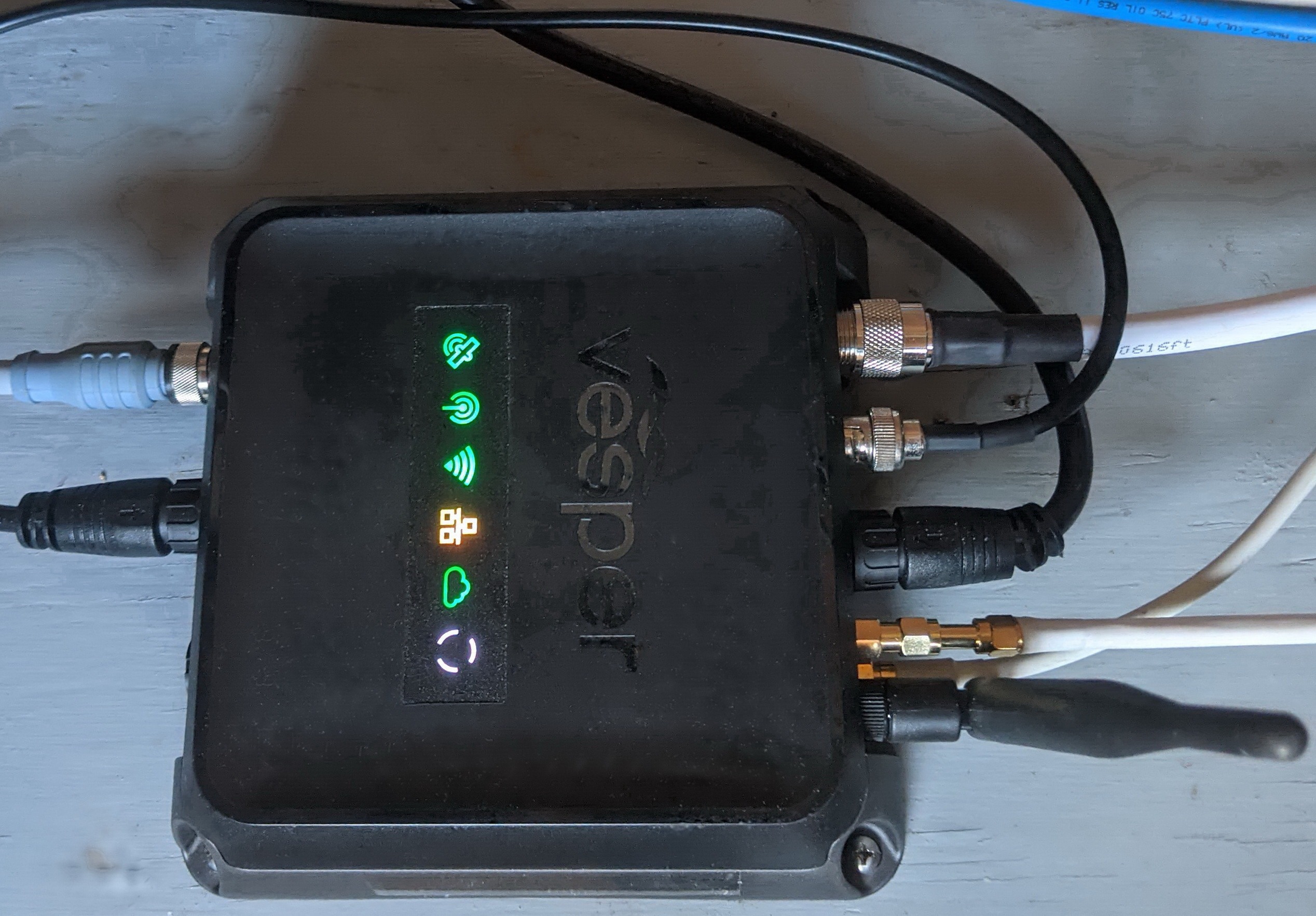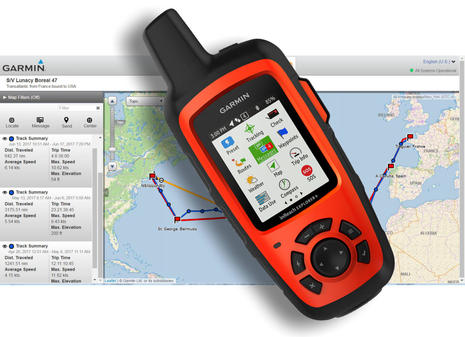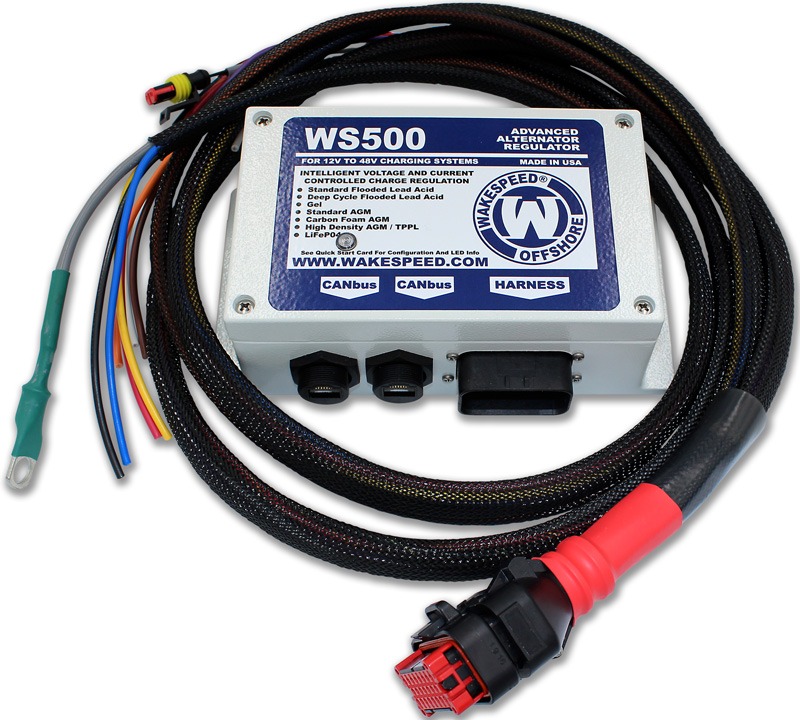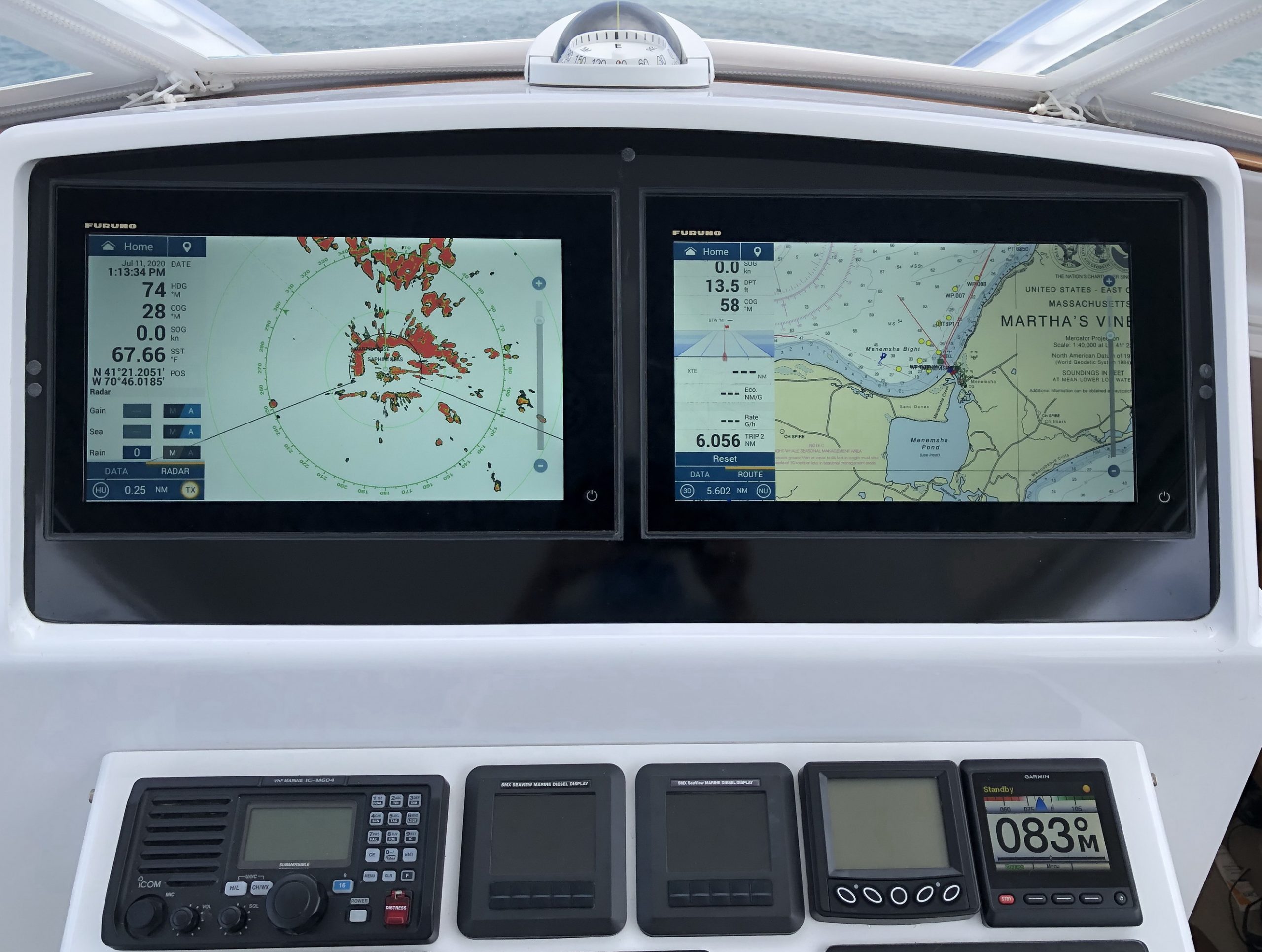Zeus (4), IPS joystick, and what does it all mean?

Volvo also introduced an omni-directional no-thruster-needed joystick at the Miami Boat Show. It has a computerised control module running a pair of independently turning IPS drives, like Zeus, but doesn’t have Zeus’s nervous system. That’s me trying it above, and while it just can’t have the precision of Zeus without the feedback, it too is a big advance in easy boat handling (plus it’s available right now). So, looking forward, we see two major marine engine manufacturers with new drive systems that offer significantly easier handling (and some other features) and are very electronic.
If I was an independent electronics manufacturer I’d be nervous. The Brunswick team—Mercury, Cummins, Northstar, and Navman—are already a little ahead in terms of the relatively simple business of putting engine data onto a CANbus (SmartCraft) so it’s available at all displays. I know companies like Lowrance and Raymarine are trying to get this sort of engine relationship using NMEA 2000, and there’s been progress, but once systems get as complicated as Zeus I doubt that multiple manufacturers will be involved. In fact, a Zeus engineer pretty much told me that it would be impossible to develop something like station holding unless it was all in-house (and note, you Ethernet freaks, that it’s all done with CANbus). Thus I found it interesting that Altor, the Swedish equity fund that’s taken over both Simrad and Lowrance, also just purchased a large Swedish boatbuilder with close ties to Volvo Penta. “Is this the beginning of a Nordic-centered Brunswick,” is the question I asked in my latest PMY column (mostly about Lowrance, and hopefully online soon). Will other engine and electronics companies merge or make alliances? Will all this push the independent players to greater support of NMEA 2000? Time will tell.













CANbus *is* NMEA 2000, more or less. Raymarine and others are already supporting engine data.
Where’s the critical analysis of how this automated systems deal with failure? With engines it’s not a matter of if, it’s a matter of WHEN will an engine cut out. How are these systems designed to handle operating in less than ideal situations? With traditional propulsion, steering and throttle controls you’ve at least got some options.
How long before someone’s Zeus or IPS equipped system loses an engine and drives the boat aground in a confused-computer frenzy, injuring or killing passengers?
Could it be possible Bill (crash and burn) Kearney works for a bow thruster company?
IPS failed my Regal 40; not fixed after a month.
I had an engine go out on a Zeus and the joy stick therefore was automatically turned off. I still could control the boat with one engine and turning the wheel. Not as easy but it still worked. Sea Ray and Cummings quickly addressed the problem and I was back boating within a little more than a week.